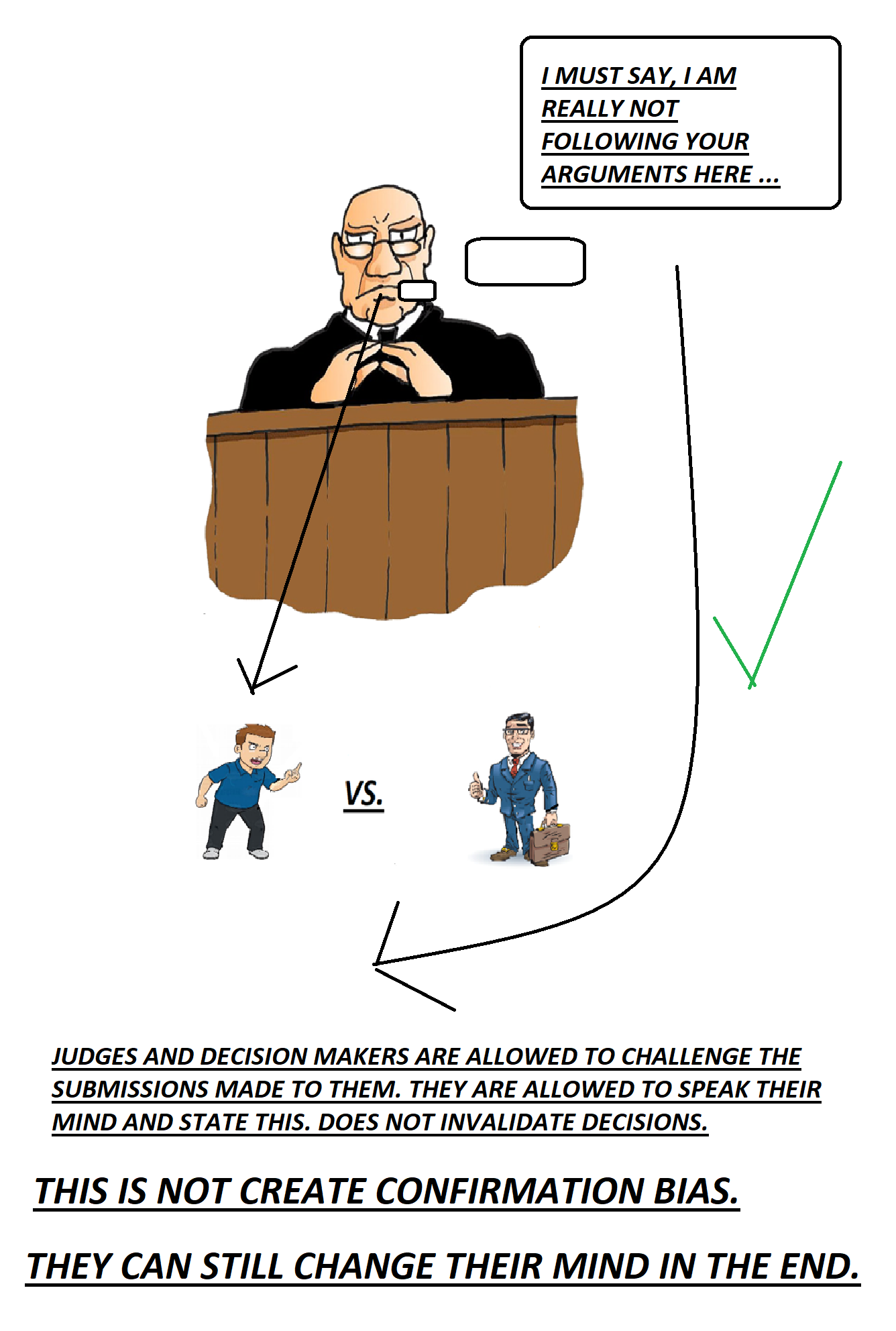Porter v Magill [2001] UKHL 67
Citation:Porter v Magill [2001] UKHL 67
Rule of thumb:Is a decision maker or Judge allowed to make comments as they go along before they have made a final decision? Yes, a decision maker can state their state of mind as they go along and this does not make them no longer able to make a final decision as the end once they have considered all the information. This is considered to be ‘brainstorming’ which does not prejudice their ability to make a final decision – a decision maker does not have to sit in silence suppressing their thoughts or questions in order to be able to make a proper decision at the end.
Background facts:
The facts were that in most places Council tenants did not have the right to buy their property. If there were marginal seats where the Conservative Party were neck-and-neck with other parties in the forthcoming election polls, the Council would decide to offer Council the tenants there the right to buy their property in the hope that this would help swing the vote in their favour. A complaint was made about Dame Porter doing this tactic and misusing the Council power to do this. An auditor investigated this and made a preliminary finding that this power of Councils was being used improperly and was being used for political gains rather than the purpose it was supposed to be used for. This auditor then did an interview with the BBC where it was announced that the preliminary findings were that this was improper conduct by Councillors in misusing the ‘right to buy’ discretion.
Parties argued:
Porter argued that doing an interview like this showed that the proceedings were not being handled properly and fairly.
Judgment:
The Court held that the auditor doing this did not breach the test set for whether proceedings were handled fairly or not – the Court affirmed that for Judges/decision-makers to provide feedback on what their early findings were before giving fuller reasons, or giving a party the right to respond to this, did not show a real danger of bias.

Ratio-decidendi:
‘The test of this is whether the circumstances were such that a fair-minded and informed observer might think there was a real possibility that the tribunal was biased... The ultimate question is whether the proceedings in question were and were seen to be fair. If on examination of all the relevant facts, there was no unfairness or any appearance of unfairness, there is no good reason for the imaginary observer to be used to reach a different conclusion ....’ ‘101. The English courts have been reluctant, for obvious reasons, to depart from the test which Lord Goff of Chieveley so carefully formulated in R v Gough. In R v Bow Street Metropolitan Stipendiary Magistrate, Ex p Pinochet Ugarte (No 2) [2000] 1 AC 119, 136A-C Lord Browne-Wilkinson said that it was unnecessary in that case to determine whether it needed to be reviewed in the light of subsequent decisions in Canada, New Zealand and Australia. I said, at p 142F-G, that, although the tests in Scotland and England were described differently, their application was likely in practice to lead to results that were so similar as to be indistinguishable. The Court of Appeal, having examined the question whether the "real danger" test might lead to a different result from that which the informed observer would reach on the same facts, concluded in Locabail (UK) Ltd v Bayfield Properties Ltd [2000] QB 451, 477 that in the overwhelming majority of cases the application of the two tests would lead to the same outcome’, Lord Hope
Warning: This is not professional legal advice. This is not professional legal education advice. Please obtain professional guidance before embarking on any legal course of action. This is just an interpretation of a Judgment by persons of legal insight & varying levels of legal specialism, experience & expertise. Please read the Judgment yourself and form your own interpretation of it with professional assistance.

